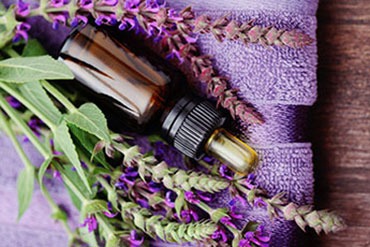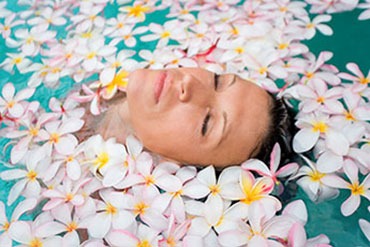Aromatherapy and Addiction
 Recovering from any type of addiction can exciting because it offers the person a new way of life. Of course, it can also be extremely challenging. The good news is that there are so many beneficial resources available to make the process easier. One of the best sources f natural remedies such as aromatherapy.
Recovering from any type of addiction can exciting because it offers the person a new way of life. Of course, it can also be extremely challenging. The good news is that there are so many beneficial resources available to make the process easier. One of the best sources f natural remedies such as aromatherapy.
Aromatherapy utilizes essential oils that are extracted from plants and herbs. The oils can be inhaled or applied through the skin through bathing, massage, or topically. Aromas derived from natural plant sources have been shown in clinical studies to have positive effects. These essential oils, which are composed of naturally occurring chemicals, can help to support emotional balance, a sense of calm, stress relief, and feelings of well-being.
Essential Oils and Recovery
While aromatherapy cannot cure addiction, essential oils can be of great value to people recovering from an addiction. This is primarily because the majority of people suffering from an addiction have a dual-diagnosis, meaning that they may also have anxiety, depression, or another mental health issues. Because of this, there are many essential oils that can benefit someone in recovery. Some of the benefits of using aromatherapy in recovery include the following.
Relaxation. Many essential oils can be effective at helping people relax. This can be particularly important for people in early recovery who can find adjusting to their new life a bit overwhelming at times. Essential oils associated with reducing stress and increasing relaxation include lavender, rosemary, rose, frankincense, bergamot, marjoram, vetiver, chamomile, lemon, geranium, cinnamon, fennel, rosewood, and ylang ylang.
Clarity. It is fairly common for people in the first year of recovery to complain of a fuzzy brain – this can occur as a result of the initial withdrawals or post acute withdrawal symptoms (PAWS). Essential oils that can increase mental clarity include lemon, rosemary, peppermint, basil, chamomile, rosewood, geranium, ylang ylang, bergamot, and jasmine.
 Sleep. Many people complain of difficulties sleeping during the early days of recovery. Essential oils in evening will be able to relax them and put them in the mood for sleep. Essential oils associated with sleep include lavender, sweet marjoram, chamomile, ylang ylang, geranium, neroli, clary sage, sandalwood, bergamot, frankincense, and jasmine.
Sleep. Many people complain of difficulties sleeping during the early days of recovery. Essential oils in evening will be able to relax them and put them in the mood for sleep. Essential oils associated with sleep include lavender, sweet marjoram, chamomile, ylang ylang, geranium, neroli, clary sage, sandalwood, bergamot, frankincense, and jasmine.
Meditation. Meditation can be of great benefit to those who are recovering from an addiction. Some people find that essential oils help them fall more easily into a meditative state. Essential oils often used with meditation include vetiver, sandalwood, cedar, patchouli, clary sage, lavender and chamomile.
Depression. Substance abuse is common among people who are battling a depressive disorder. Some of the essential oils that are good at lifting people’s mood include include ylang ylang, geranium, jasmine, orange, sandalwood, lemon, lemon verbena, and mandarin..
Anxiety. Some of the essential oils that can help people reduce anxiety levels are lavender, ylang ylang, bergamot, petigrain, neroli, bergamot, cypress, lavender, lime, marjoram, rose, and violet leaf.
Choosing Essential Oils
To be truly effective, essential oils must be absolutely pure. Synthetic or adulterated oils, although less expensive, will not give you the effects you desire and may even have adverse effects. To insure quality, you may want to choose only oils that are guaranteed to be organic or ethically wild crafted, properly distilled or extracted, originating from a reliable source and priced accordingly. It is critical that the oils are species specific.
It is important to use caution when using essential oils. Like herbal medicine, aromatherapy involves powerful plant-based products that can cause adverse reactions. For example, certain essential oils are not recommend for use during pregnancy, and may be skin irritants if not properly administered. Additionally, essentials oils should never be ingested unless under the strict guidance of a health professional.
If you would like to learn more about how aromatherapy works with addiction treatment, please call me office for an appointment.




